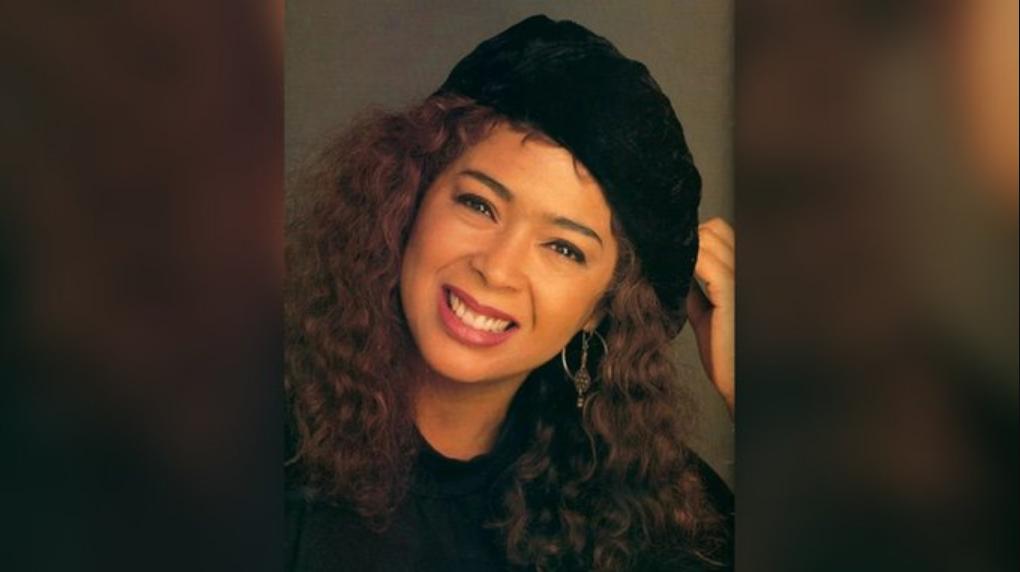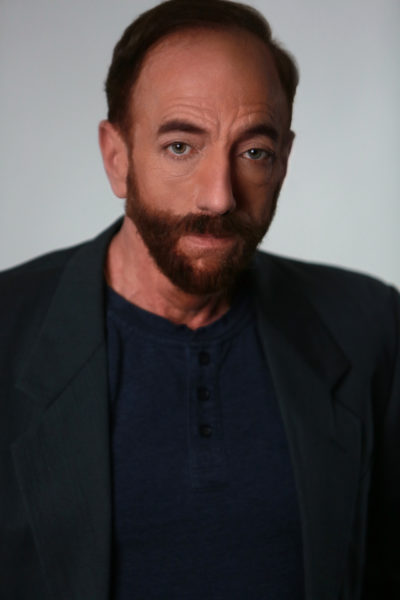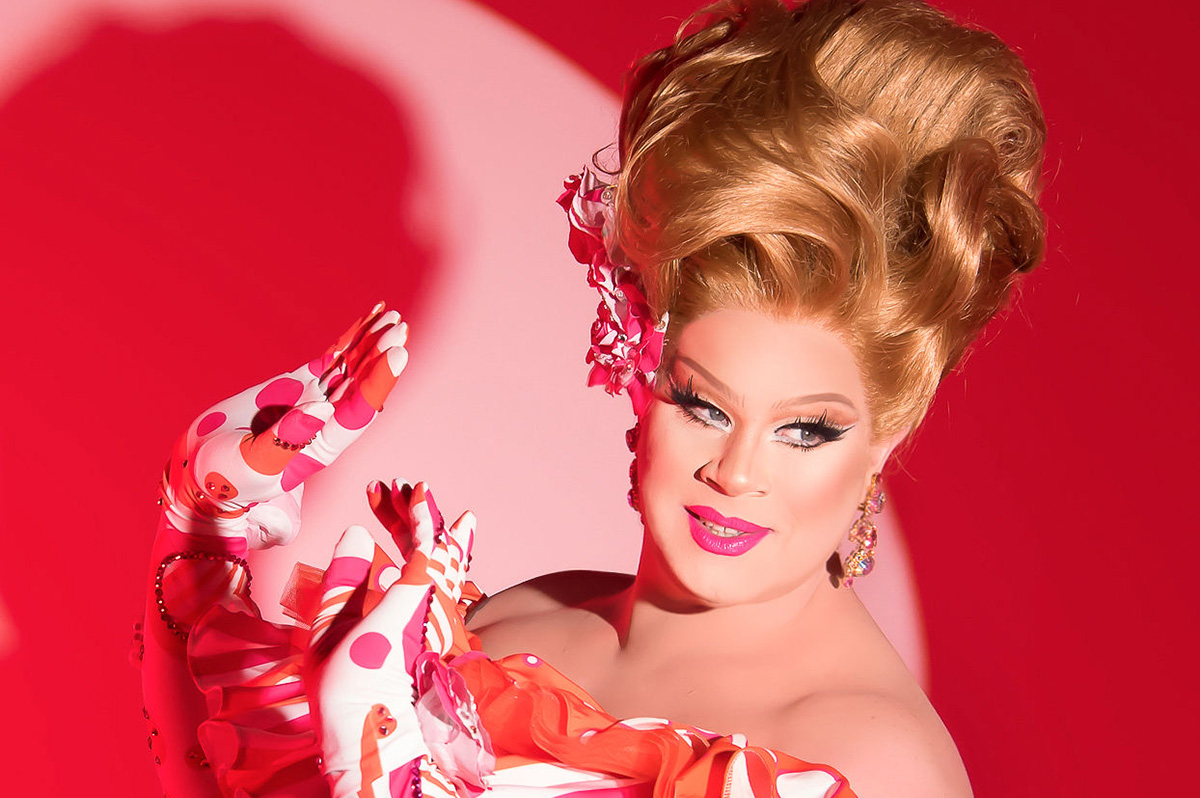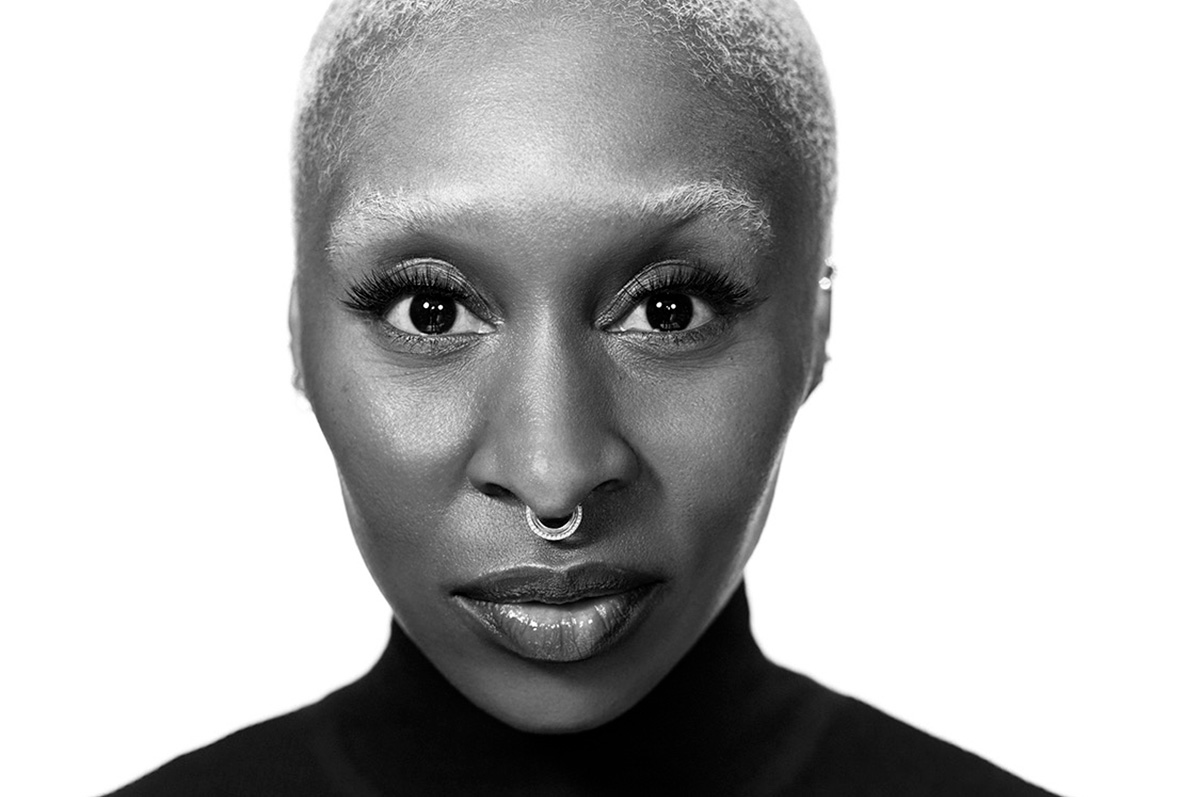Celebrity News
The death of Irene Cara and the broken promise
Singer inspired a generation of gay men

As I walked down the dark alley towards the glowing light, the opening bridge of the song called to me. “Baby, look at me and tell me what you see, You ain’t seen the best of me yet, Give me time, I’ll make you forget all the rest, I got more in me…”
The movie “Fame” had just come out and its anthem theme song was HOT. The glowing light that night was a gay disco, tucked away from heterosexual view, while gay bashers circled in trucks a few blocks away. That safe haven in the dark alley allowed me, a 20-year old youth, a path out of the closet in which I emotionally and sexually had residence. To me, the words of the song “Fame,” and its overwhelming delivery, was my inner drive and conviction that I could be me, and my own personal superstar.
The young woman delivering the song was barely an adult herself. Irene Cara had been a child performer and was now breaking into the fame she was singing about. She was “instantly” famous thanks to “Fame.” Amongst other accolades, she was nominated for a Best New Artist Grammy. The song itself won the Oscar that year.
The Grammy nomination put a public trapping on what we all knew: She was a star, and had all the makings to become a superstar, an icon.
For LGBTQ people, her work that year spoke to our souls and our optimism. As “Randy 503” shared on the Joe.My.God site, “I was a deeply closeted and lonely kid in my early 20s. Not lonely because I didn’t have friends (had tons of them,) but lonely because I refused to admit I was gay and kept away from all that. I saw the movie and was transfixed. Bought the album and played it all the time, especially her songs. Her voice was so strong, and so expressive, it really touched me.”
Cara’s second song in the movie also resonated with the gay audience. While “Fame” spoke to the sassy optimism of embracing our outstanding selves and taking the world by storm, “Out Here On My Own” spoke to the dark loneliness of the closet. “Sometimes I wonder where I’ve been, who I am, do I fit in … when I’m down and feeling blue, I close my eyes so I can be strong and be with you … I dry the tears I’ve never shown, Out here on my own.”
Randy points out, “Out here on my own always left me in tears. It hit so close to home, and I could feel sadness on it. It’s a great song sung by one of the best.”
After the success of “Fame,” Cara ventured into a sitcom pilot and a freshman album, “Anyone Can See.” Neither caught the world on fire, as apparently only some of us could actually “see” her real worth.
It was not long after however, where Cara’s apparent life mission to deliver culture changing anthems, came calling again. She was recruited to help out with the new “Flashdance” movie, and to work with iconic gay producer Giorgio Moroder for its theme song. Cara was reportedly reluctant. She had already been criticized as a second tier Donna Summer with “Fame,” and was hesitant to get into that musical lane. Later she would work with John Farrar whom she credited as being responsible for ALL of Olivia Newton John’s hits. It seems that her superstar aspirations were more to be Pop Princess than another Queen of Disco.
She did sign on board with Moroder and “Flashdance,” and made history. Her song “Flashdance… What a Feeling” went to #1 for six straight weeks. It affected American culture in style, attitude and substance. On Academy Awards night, Cara made history again. (She had already made history in a minor way a few years before as the first person to ever perform two nominated songs in one evening.) This time, she became the second African American woman to win an Oscar – the first being “Gone With the Wind”’s Hattie McDaniels.
Cara was the first African American woman to ever win a non-acting Oscar ever.
The anthem “Flashdance…What a Feeling” spoke to LGBTQ audiences of the 80s, in a way that “Fame” had. “First when there’s nothing but a slow glowing dream that your fear seems to hide deep inside your mind. All alone, I have cried silent tears full of pride in a world made of steel, made of stone, Well, I hear the music, close my eyes, feel the rhythm wrap around, take hold of my heart. What a feeling, being is believing I can have it all..”
Online, Joe.My.God reader BearlvrFl shared, “LUV the song “Out Here On My Own” I call ‘Flashdance: What A Feeling’ my coming out song, popular on the dance floor very close to the time I finally came out at the age of 22. I could relate to “Take your passion/And make it happen.” Super simple lyric, but it’s timing was everything for me, having been closeted for so long.”
This time, AIDS had brought a very dark cloud over the community, however. Its ravage was starting to take widespread hold. It made the line in the song “now I’m dancing for my life” even more poignant and relevant.
The darkness that was falling over the LGBT world was on a parallel track in Cara’s own life. As she picked up Oscars and Grammys, there was a sadness in her eyes above the smile on her face. She shared later that the public glory was matched with a behind-the-scenes horror story. Her record company was keeping her from garnering any success from her accomplishments. Columnist Liz Smith stated in a 1993 piece that Cara earned only $183 in royalties.
Cara inspired women of her generation. Patti Piatt shared on Twitter, “I am from a generation of women who thought anything was possible because of Irene Cara. She gave us so much joy. We all danced to her songs, didn’t matter if we could dance, we danced because she made us want to dance.”
In spite of singing THE anthem of women empowerment, Cara became an example of a woman destroyed by the male dominated music industry. As she fought back for earnings due her, she became black-listed, and her trek to superstardom halted. They made her all but disappear. A decade later, she won, but by that time, the damage had been done.
Her final solo album subconsciously called out her professional demise with songs titled “Now That It’s Over,” “Get a Grip” and the ultimate defeatist title “Say Goodnight Irene.”
“I know well enough this is going nowhere … Might as well say goodnight, Say Goodnight, Irene.”
In the end, she seemed to find peace. Her final professional projects were gifts to other women musicians of color. She comfortably settled into what she called “semi-retirement” and her Florida home with a steady stream of funds from her hard-earned residuals.
The promise of becoming a superstar eluded her, but she busted the ceiling so it might not elude others. Painfully for fans, the promise from the song “Fame,” “I’m gonna live forever” also did not come true.
Let’s instead, think of her making “it to heaven” and lighting “up the sky like a flame.”
For those trying to find final meaning from her life, and the un-fulfilled promise of what could have been for her and for us, may do so in the words from her lesser-known anthem. Here we swap out a promise instead for “The Dream”:
“We can all be free, we hold the key, if we can see what we want to be. Life is never easy, you get no guarantees, why not give your all and see what you can find?”
And, yes.
Irene Cara, we will always remember your name.
“The Dream”
*************************

Rob Watson is the host of the popular Hollywood-based radio/podcast show RATED LGBT RADIO.
He is an established LGBTQ columnist and blogger having written for many top online publications including Parents Magazine, the Huffington Post, LGBTQ Nation, Gay Star News, the New Civil Rights Movement, and more.
He served as Executive Editor for The Good Man Project, has appeared on MSNBC and been quoted in Business Week and Forbes Magazine.
He is CEO of Watson Writes, a marketing communications agency, and can be reached at [email protected] .
Celebrity News
Nina West’s ‘Sugar in the Tank’ tour comes to Rehoboth Beach
Drag Race’ contestant will be at Clear Space Theater Company on July 6

Nina West, a drag queen known for competing on “RuPaul’s Drag Race,” is currently on her ‘Sugar in the Tank’ tour around U.S. cities.
With previous shows in Key West, Fla., New York, and hometown of Columbus, Ohio, the tour is staying put in Provincetown, Mass., from late July to early September. It will make a stop at Clear Space Theater Company in Rehoboth Beach, Del., as part of a summer cabaret series on July 6.
Andrew Levitt has been performing as Nina West for 25 years, who got her rise from starring in “Drag Race” Season 11, where she placed sixth and won Miss Congeniality, a title awarded to the contestant who is regarded as the kindest and most helpful one of that season.
West has toured “Hairspray” on Broadway as Edna Turnblad, starred in a couple of feature films and published a children’s book titled ‘The You Kind of Kind.’
Levitt said he wrote this show in response to attacks from the government towards the LGBTQ community.
“‘Sugar in the Tank’ is a big old gay fabulous summer musical,” Levitt told the Washington Blade. “The show is a response to the darkness that I think has fallen over a lot of people in the country and it’s hopefully trying to bring a little bit of light and a little bit of joy.”
“Sugar in the Tank” is a Southern euphemism for gay, often holding a negative connotation. Levitt said he wanted to “reclaim and embrace” queerness in times when some people want to take that away.
Levitt said he knew he would be traveling to predominantly queer destinations like Key West and Provincetown for these shows and that was always at the forefront of his mind when writing “Sugar in the Tank.”
This will be Levitt’s first time in Rehoboth Beach. Clear Space Theater is considered Delaware’s second-largest professional non-profit theater and the state’s most prolific producer of professional theater. The space seats just 170 patrons and Levitt said he loves the intimacy of a small venue and that it’s his favorite way to do a show.
“Stages like this size are the perfect size for me because it allows for me to really showcase my talents,” Levitt said.
Levitt founded the Nina West Foundation in 2015 to uplift and sustain the central Ohio LGBTQ community, which has raised more than $3 million for various organizations. He said he makes activism part of the entertainment in his career.
“That’s the nuance of what drag is. We can be ridiculous for fun and we can be serious but it’s all wrapped up into one thing,” Levitt said. “I think that can be the power of it.”
Levitt said West is so much more confident now than when he first started performing as her. He didn’t know where his voice belonged in the community in the past, but because of those who came before him in this art form, he has learned to harness the power of the stage and the power of the wig to be able to tell stories.
“I really love my community. I love queer people. I love who we are and what we represent,” Levitt said. “Knowing our history and knowing that we’ve been through a lot, I’m really thrilled that as a queen, I can use my voice and my platform to help try to better our community, not try to speak for everyone but try to lend voice to people who desperately need it.”
Levitt’s advice to young queer artists is to not give up on yourself, surround yourself with supportive people and allow yourself the opportunity and space to fail, to ask questions, and to not give up.
“Our young people have got to be told they matter,” Levitt said. “Oftentimes, people are told that they don’t matter, that their voice doesn’t matter, that they cannot make a difference and I want to remind every single person who’s doing this that they do matter, they can make a difference, their voice is intrinsic to who we are as a community.”
If Sugar in the Tank was a drink, it would be a Bahama Mama or Sex on the Beach, said Levitt, because they are delicious, juicy, and sugary, just like the show.
“I just want everyone to know that they should come to ‘Sugar in the Tank’ and experience a show that’s built on joy and levity and silliness and fun and come have some fun with me and show me the fabulous love of Rehoboth Beach,” Levitt said. “I can’t wait.”
Celebrity News
Brazilian police arrest two men who allegedly targeted Lady Gaga concert
Authorities say suspects wanted to target LGBTQ Brazilians

Brazilian police have arrested two people who allegedly sought to detonate explosives at a free Lady Gaga concert that took place on Rio de Janeiro’s Copacabana Beach on Saturday.
The Associated Press reported Felipe Curi, a spokesperson for the city’s Civil Police, told reporters the men who authorities arrested hours before the concert took place wanted to target LGBTQ Brazilians. Civil Police Chief Luiz Lima said the men posted hate speech and violent content online “aimed at gaining notoriety in order to attract more viewers, more participants — most of them teenagers, many of them children.”
“They were clearly saying that they were planning an attack at Lady Gaga’s concert motivated by sexual orientation,” said Cury, according to the AP.
An estimated 2.5 million people attended the concert.
A Lady Gaga spokesperson told the AP the singer learned about the threats on Sunday from media reports.
“Prior to and during the show, there were no known safety concerns, nor any communication from the police or authorities to Lady Gaga regarding any potential risks,” said the spokesperson. “Her team worked closely with law enforcement throughout the planning and execution of the concert and all parties were confident in the safety measures in place.”
Lady Gaga in an Instagram post thanked her Brazilian fans.
“Nothing could prepare me for the feeling I had during last night’s show — the absolute pride and joy I felt singing for the people of Brazil,” she wrote. “The sight of the crowd during my opening songs took my breath away. Your heart shines so bright, your culture is so vibrant and special, I hope you know how grateful I am to have shared this historical moment with you.”
“An estimated 2.5 million people came to see me sing, the biggest crowd for any woman in history. I wish I could share this feeling with the whole world — I know I can’t, but I can say this — if you lose your way, you can find your way back if you believe in yourself and work hard,” added Lady Gaga. “You can give yourself dignity by rehearsing your passion and your craft, pushing yourself to new heights — you can lift yourself up even if it takes some time. Thank you Rio for waiting for me to come back. Thank you little monsters all over the world. I love you. I will never forget this moment. Paws up little monsters. Obrigada. Love, Mother Monster.”
An estimated 1.6 million people attended Madonna’s free concert on Copacabana Beach last May.
Celebrity News
Cynthia Erivo to headline WorldPride Saturday concert
‘An extraordinary moment of unity, celebration, and visibility’

WorldPride DC 2025 announced today that “Wicked” star, LGBTQ icon, and award-winning performer Cynthia Erivo will headline the WorldPride 2025 Saturday night Street Festival and Concert on the Capitol Stage following the parade.
A multi-week long series of events, WorldPride DC 2025 culminates in a free, inclusive, two-day event June 7-8, 2025. The event features a mix of local artists, DJs, and performers alongside big names in entertainment like Erivo. Taking place June 7-8 along Pennsylvania Avenue, the weekend WorldPride spectacular is to be a display of “pride, music, and unity.”
Erivo delivers “a powerhouse headlining performance against the iconic backdrop of the U.S. Capitol Building,” according to organizers.
“As the culminating event for the parade, the Saturday night concert will be an extraordinary moment of unity, celebration, and visibility for our global LGBTQ+ community,” said Ryan Bos, executive director of the Capital Pride Alliance, host of WorldPride 2025. “Cynthia Erivo’s powerful artistry and unwavering advocacy make her the perfect artist to headline this momentous event.”
An actress, producer, singer, songwriter, and advocate for the LGBTQ and Black communities, Erivo has been making even larger headlines after starring in the award-winning “Wicked” movie alongside Ariana Grande. Having recently embraced her LGBTQ identity, Erivo has been using this platform to promote representation.
The free WorldPride 2025 Street Festival and Concert takes place in front of the U.S. Capitol building. The event is set to bring together visitors from across the U.S. and the world, featuring exhibitors, artisans, food and beverage gardens, and a diverse range of local, national, and big-named artists.
WorldPride plans to announce the names of additional artists and performers in the coming days.
According to WorldPride organizers, the theme The Fabric of Freedom “symbolizes the unity and resilience of the LGBTQ+ community. Following the 2024 presidential inauguration, it serves as a reminder of the ongoing fight for equality and the strength found in diversity.”
Outside of the official WorldPride events, other associated concerts will be taking place that weekend, including the recently announced Project Glow-organized World Pride Music Festival featuring Jennifer Lopez and Troye Sivan, which garnered some controversy by including the artist Grimes, a former partner of Elon Musk.
-

 U.S. Supreme Court3 days ago
U.S. Supreme Court3 days agoSupreme Court to consider bans on trans athletes in school sports
-

 Out & About3 days ago
Out & About3 days agoCelebrate the Fourth of July the gay way!
-

 Virginia3 days ago
Virginia3 days agoVa. court allows conversion therapy despite law banning it
-

 Federal Government5 days ago
Federal Government5 days agoUPenn erases Lia Thomas’s records as part of settlement with White House







